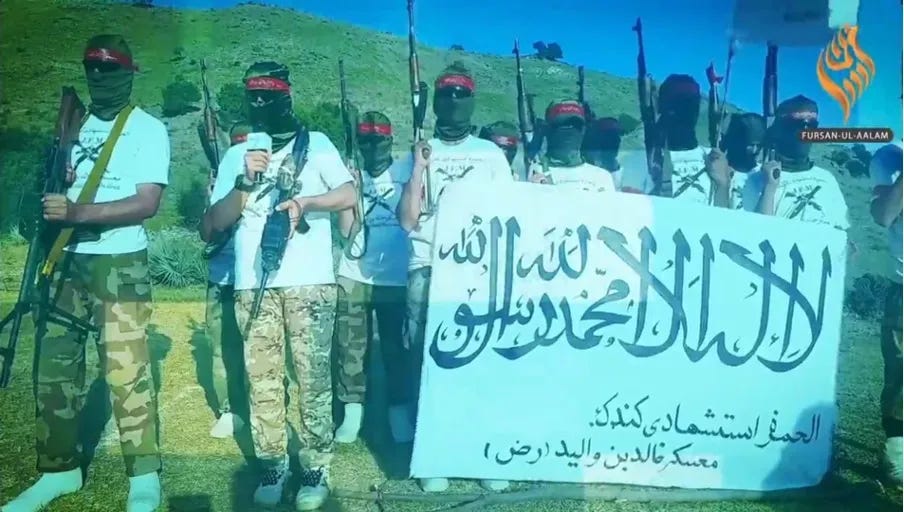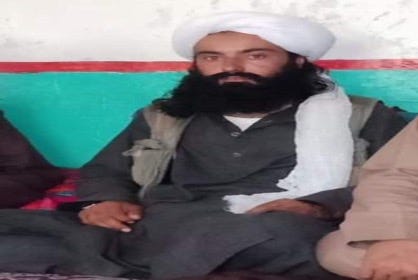On March 12, 2023, a soldier of the Frontier Constabulary was killed in an armed attack on a check post in the Baka Khel area of Bannu district, Khyber Pakhtunkhwa province. Jabhat Ansar al-Mahdi (Khorasan/Waziristan), an outfit affiliated with the Hafiz Gul Bahadur group, took responsibility for the attack and simultaneously announced the beginning of a “spring offensive” against the Pakistani security forces. This new offensive was termed “Operation Tariq ibn Ziyad.”
In the last week of December 2022, the group released a video that showed, an individual, whom the group claimed was working for Pakistani security forces, being abducted, interrogated, and subsequently executed by a militant.
The execution of the alleged spy came on the heels of an attack by TTP militants on the compound of the Counter Terrorism Department in Bannu, Khyber Pakhtunkhwa province. TTP fighters (including commanders), who were in the custody of CTD personnel inside the compound, reportedly, overpowered security personnel and snatched their weapons. Several other inmates were freed, and security officials in the building were held hostage. The militants demanded safe passage to Afghanistan.
After two days of failed negotiations between the government and the militants, the Pakistan Army’s Special Services Group (SSG) commandos launched an operation and killed all 25 militants.
One of the reasons for the abduction and subsequent execution of the spy that could be understood from the video shared was that he was allegedly involved in passing information to the Pakistani security forces that led to the arrest of two militants, Abdul Qayyum and Amanullah, who were involved in orchestrating the hostage crisis inside the CTD compound in Bannu.
Militant attacks in Pakistan have surged ever since the Afghan Taliban took over Kabul in August 2021. A significant number of these attacks have been carried out by the Tehreek-e-Taliban Pakistan (TTP), or the Pakistani Taliban, after a cease-fire between the group and the Pakistani government broke down in November last year, with the TTP commanding its members to launch assaults “anywhere you can in the entire country.”
The Pakistan Security Report 2022 states that 179 of the 262 attacks that took place last year were carried out by organizations with a religious motive such as the TTP, Hafiz Gul Bahadur group, and Islamic State (also known as Daesh).
According to the Pakistan Institute for Conflict and Security Studies, the country experienced at least 376 terror attacks in 2022, in which 533 people were killed and 832 were injured. This is the first time since 2017 that the country has faced more than 300 militant attacks. In 2017, Pakistan witnessed 420 militant attacks in which 912 people were killed and 1877 were injured.
January 2023 saw one of the deadliest attacks to strike the country in recent years. A total of 84 people, mostly policemen, lost their lives in a suicide blast that occurred inside a mosque in Peshawar’s Police Lines area in Khyber Pakhtunkhwa province. A few days later, on February 17, TTP militants stormed the Karachi Police Office building in Sindh province, killing 5 and injuring 17.
Apart from the TTP, another Islamist group called the “Hafiz Gul Bahadur group” has been involved in attacks against the Pakistani security forces.
Background
Hafiz Gul Bahadur, a leader of the Pakistani Taliban, once controlled the North Waziristan district. He probably participated in the Afghan civil war from 1992 to 1996, during which the Taliban began to seize control of most of Afghanistan.
Bahadur was active as the leader of Jamiat Ulema-e-Islam (JUI) in North Waziristan district. He had vehemently opposed the deployment of monitors by the United Nations near the Afghanistan-Pakistan border region in order to halt the flow of weapons to the Afghan Taliban. After the U.S. invasion of Afghanistan, following the 9/11 attacks, foreign fighters started migrating from Afghanistan into tribal areas of Pakistan. Bahadur, while he opposed the Pakistani military operation against the militants, remained skeptical of the presence of foreign fighters in North Waziristan, many of whom were Uzbeks – part of the Islamic Movement of Uzbekistan.
Beginning in 2004, there were reports of clashes and an eventual peace deal between Bahadur and the Pakistani government in September 2006. The deal, however, could not be enforced, and the peace accord was called off in July 2007 with Bahadur accusing the Pakistani government of re-establishing checkpoints along North Waziristan roads.
In December 2007, Hafiz Gul Bahadur joined Tehreek-e-Taliban Pakistan (an umbrella organization of 40 senior Taliban leaders from throughout Pakistan). He was a member of the local Taliban shura since 2005. Gul Bahadur was appointed as the deputy emir of the group. While a member of the TTP, Hafiz was involved in negotiations with the Pakistani government to reach an agreement to establish peace in the area. He chaired a meeting of militants that extended a cease-fire until January 20, 2008.
Gul Bahadur started to distance himself from the TTP after the latter began attacking Pakistani government forces. He refused to coordinate activities with the TTP. In late December 2008 and early January 2009, the then-leader of al-Qaidah Osama bin Laden and Afghan Taliban leader Mullah Omar met with three important commanders of the TTP – Baithullah Mehsud (chief), Hafiz Gul Bahadur and Maulvi Nazir. They urged the leaders to put aside their differences, reduce their attacks inside Pakistan, and provide support to the Afghan Taliban, who were at that time fighting the NATO forces.
The commanders agreed and a temporary alliance was formed known as the “Shura Ittehad ul-Mujahideen” in February 2009. The council, however, was disbanded in August 2009, and Bahadur and Nazir decided to split from the TTP and started acting as independent groups within the Pakistani Taliban.
Bahadur has maintained on-and-off relationships with both the Pakistani government and Tehreek-e-Taliban Pakistan over the last several years. The group has scaled up attacks after the Afghan Taliban took control of Kabul in 2021, with many of these attacks being suicide bombings (some of them went unclaimed, but they have been attributed to the group).
Interview
In two separate interviews given to the author, the spokespersons of Jabhat Ansar al-Mahdi and Jaish-e-Fursan-e-Muhammad, both the groups being factions of Hafiz Gul Bahadur group, spoke about their group and presented their views.
“Jabhat Ansar al-Mahdi is not a separate organization,” said the spokesperson for the group. “We are part of the Hafiz Gul Bahadur group, and our outfit came into existence first under the leadership of Abdur Rehman Wazir. We began our fight first because of the American invasion of Afghanistan, and then when Pakistan became an American frontline ally to support the latter’s aggression in Afghanistan,” he added.
Zubair Waziristani continued, “Last year, we decided to revamp our outfit and create new rules and regulations. The group was not previously an organized group.”
When questioned about the group's fighters and leadership, he responded that Hafiz Gul Bahadur is the group's leader, but Siddiqullah Siddique is in control of the organization. “Only Pakistani Mujahideen are a part of our organization, and we have sworn loyalty to Haibatullah Akhundzada, the leader of the Afghan Taliban.”
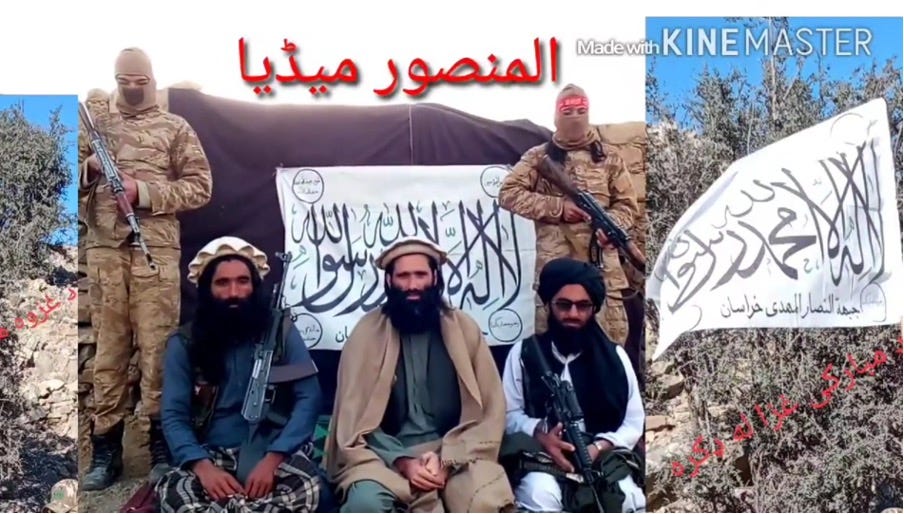
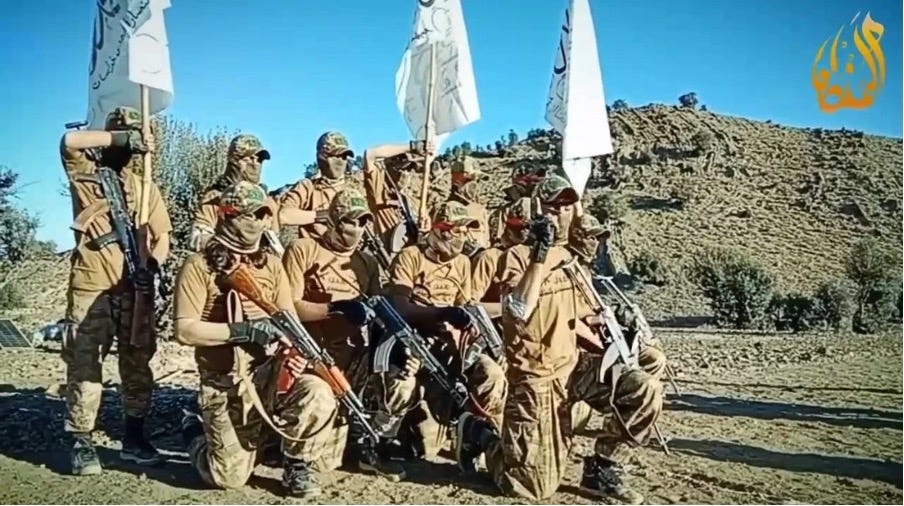
Jaish-e-Fursan-e-Muhammad was founded in 2014, the group’s spokesperson disclosed. “We first waged jihad in Afghanistan against the American troops and its allies. The Pakistani military took advantage of this circumstance to begin operations in North Waziristan, which resulted in hardship for the locals. We, therefore, resolved to launch a war against the Pakistani government following discussions among ourselves,” said Nusratullah Waziristani.
“Our leader is Maulvi Hafiz Gul Bahadur, and the person in charge of our organization is Khalid. We have sworn fealty to the Emir of the Afghan Taliban, Haibatullah Akhundzada, and there is no difference between us and other jihadist organizations fighting against the Pakistani government,” the spokesperson said.
“Our organization consists of common fighters and Istishhādeen (suicide bombers),” Nusratullah Waziristani stated, adding that the group has a separate formation for common fighters and another for Istishhādeen.
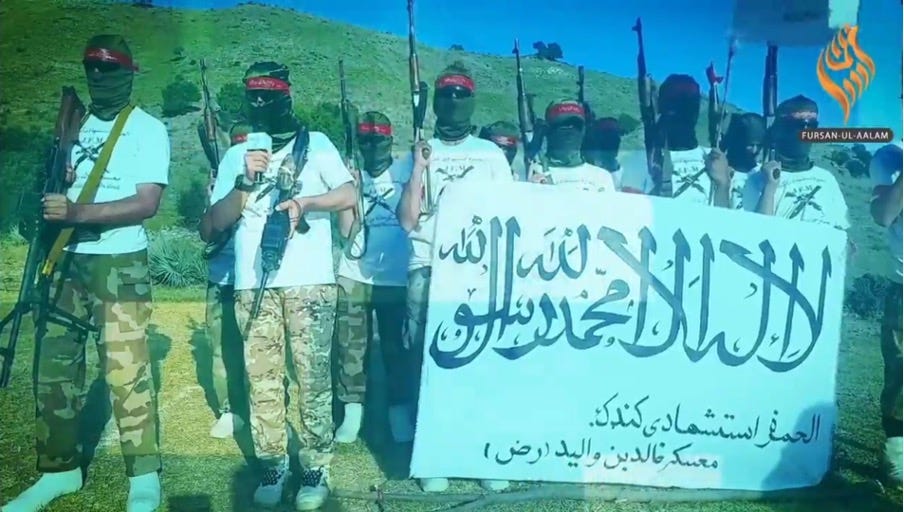
The spokespersons for both factions assert that they do not receive any assistance from the Afghan Taliban, despite the fact that they have sworn allegiance to the Emir of the Afghan Taliban.
“After 20 years of sacrifice, Afghanistan has the government that it has today. We have not requested personnel or financial assistance from the Islamic Emirate of Afghanistan due to political expediency; instead, we fulfill our needs through other means from Pakistan”, claimed Zubair Waziristani.
“We have sacrificed a lot in order to establish the Islamic Emirate. However, even after its establishment, we have not asked for any kind of help or cooperation because it is still in a state of war, and most importantly, we do not need any help from the Islamic Emirate,” said Nusratullah Waziristani.
Another militant group operating in Pakistan that has pledged allegiance to the Emir of the Afghan Taliban is the biggest and most deadly outfit of which Hafiz Gul Bahadur was once the deputy chief is Tehreek-e-Taliban Pakistan. The chief of TTP, Mufti Noor Wali Mehsud alias Abu Mansoor Asim, pledged allegiance and reiterated the same after the Afghan Taliban seized Kabul.
“We view the TTP, an organized organization, as our brothers. The fact that there haven't been any unpleasant incidents between the groups is proof that we have good ties with them”, Zubair Waziristani stated.
Nusratullah Waziristani confirmed the statements of Zubair Waziristani, declaring “There is no disagreement with Tehreek-e-Taliban Pakistan. We all have only one goal.”
Besides TTP, Zubair Waziristani asserted that they have no direct links with al-Qaidah. However, “we definitely are aligned ideologically,” he said.
Nusratullah Waziristani, too, denied having any links with al-Qaidah.
“Mujahideen from all over the world are our brothers,” Zubair mentioned, adding that the groups that were dormant for the past few years and have recently become active in Pakistan and claimed responsibility for attacks. He believed Lashkar-e-Khurasan, Lashkar-e-Jhangvi, and others “should unite under the leadership of one Emir, and we are trying to do it according to our own ability.”
Though they consider “Mujahideen from all over the world as their brothers,” one particular group has been excluded from this category; the extremely violent transnational jihadist group known as the Islamic State or Daesh.
“Our strategy and outlook on Daesh are similar to that of the Afghan Taliban's strategy and outlook,” Zubair Waziristani responded when asked about the group’s opinion on the ISKP and its alleged links with the TTP.
“Daesh has no presence in Pakistan,” claimed Nusratullah, while simultaneously advising them to “stop massacring innocent and oppressed Muslims,” and inviting them “to join the Islamic Emirate (Afghan Taliban).”
Conclusion:
The former Chief of the Army Staff, General (R) Qamar Javed Bajwa recently admitted to “managing” Pakistani politicians, journalists, and foreign affairs. Pakistan, meanwhile, is facing economic turbulence and political instability. The former Prime Minister Imran Khan accused the Pakistani military and the ISI of ousting his government in a controversial vote of no-confidence last year in April. Since then, the economy has experienced a downturn, and the nation has seen divides in politics, society, judiciary, and—most significantly—within the military.
All these factors have enabled militants to gain a foothold in the country. This was confirmed in a recent letter by the governor of Khyber Pakhtunkhwa province to the Election Commission of Pakistan, wherein he stated that the “TTP is now running a shadow government in Pashtun majority areas of the country.”
Beginning in July 2020, nearly two dozen militant groups have pledged their loyalty to Mufti Noor Wali Mehsud, the Emir of the Tehreek-e-Taliban Pakistan. Access to modern weapons left by the U.S. and its allies in Afghanistan during their withdrawal from Kabul in 2021 has only exacerbated the conflict.
These variables have hampered the military's fight against militant organizations, and it appears that militants are taking advantage of the situation by increasing pressure on Pakistani security forces. This trend suggests that Pakistan will likely see a rise in violence in 2023.


